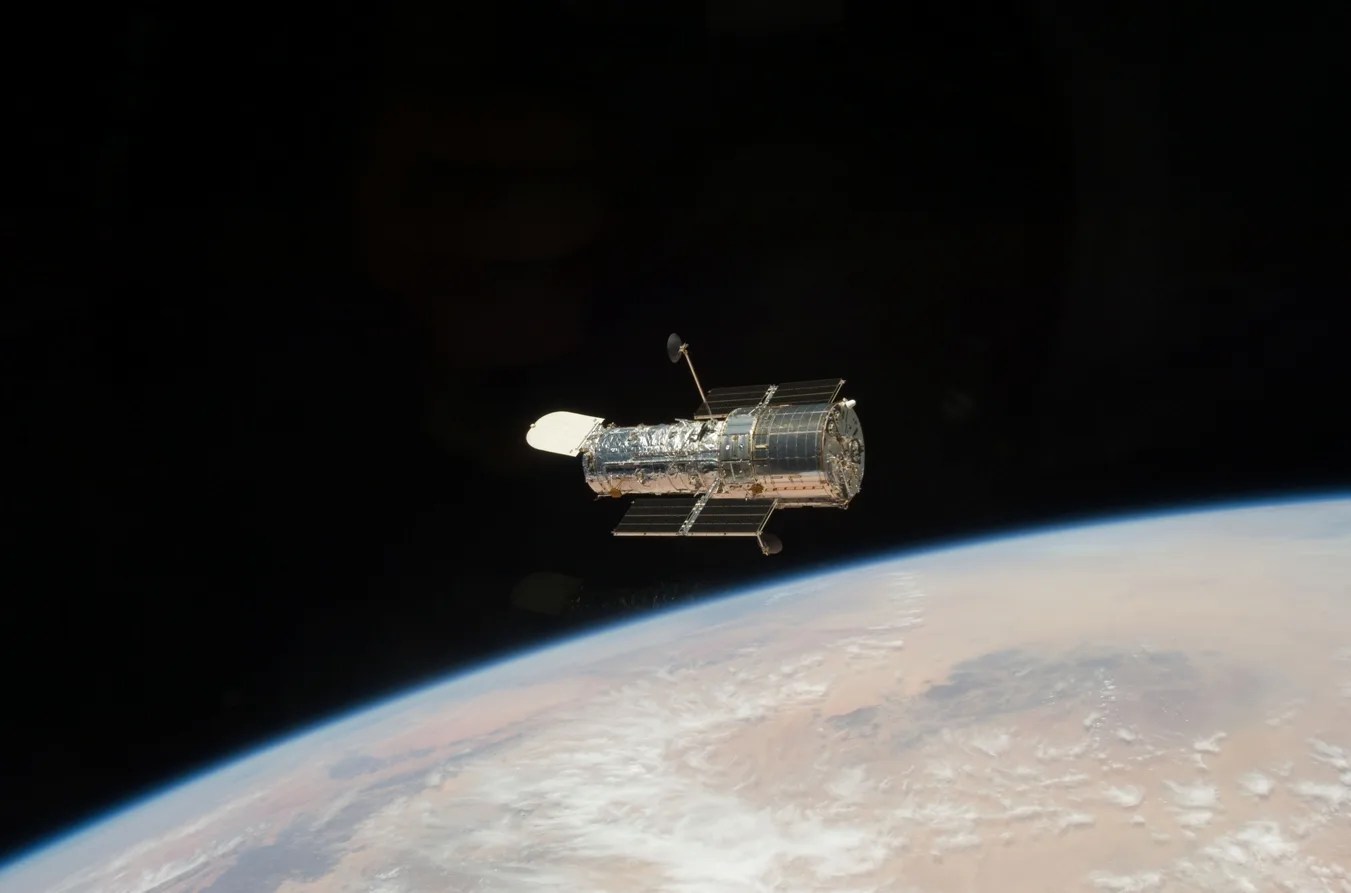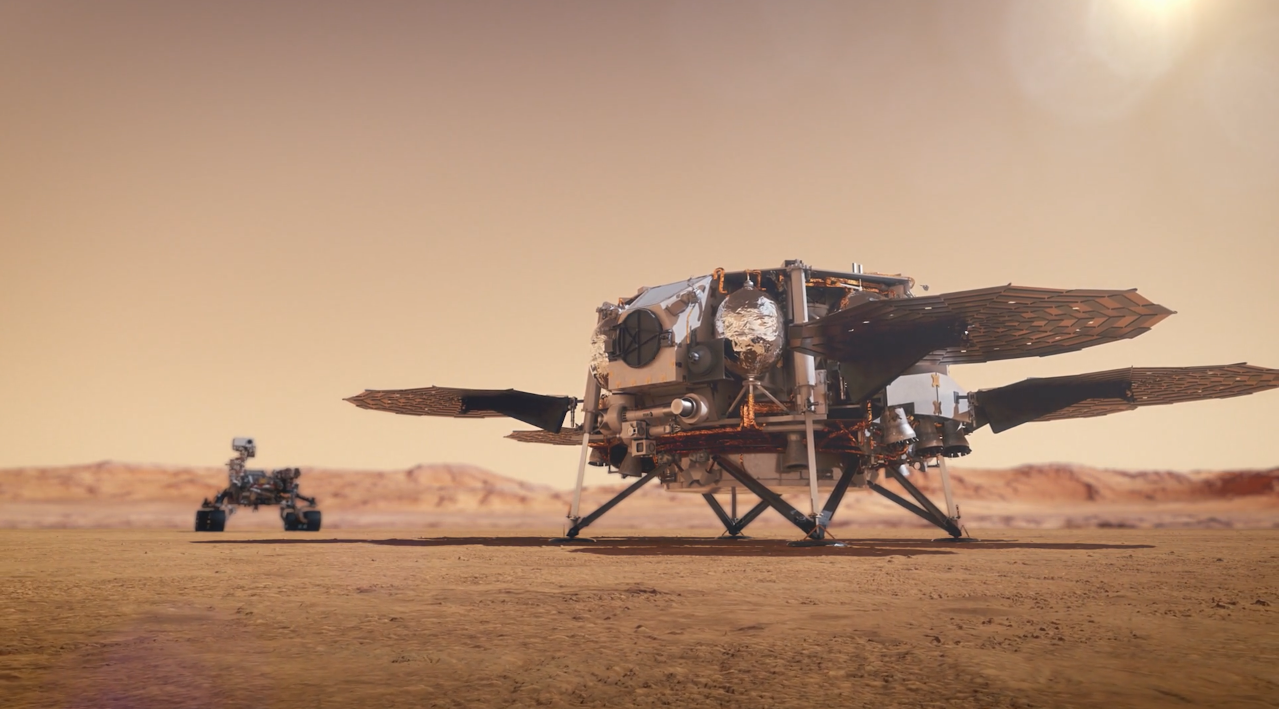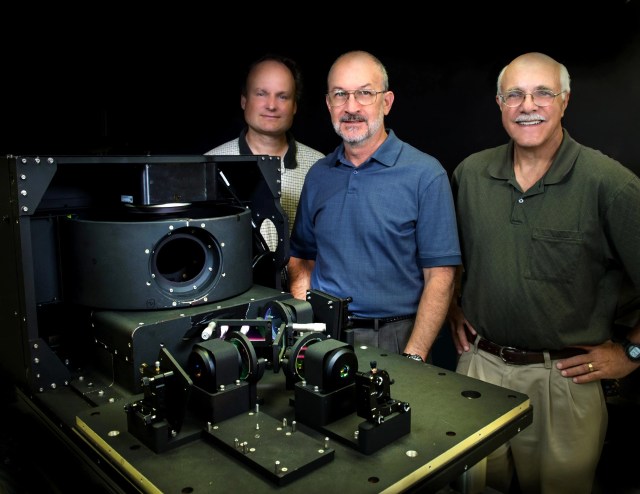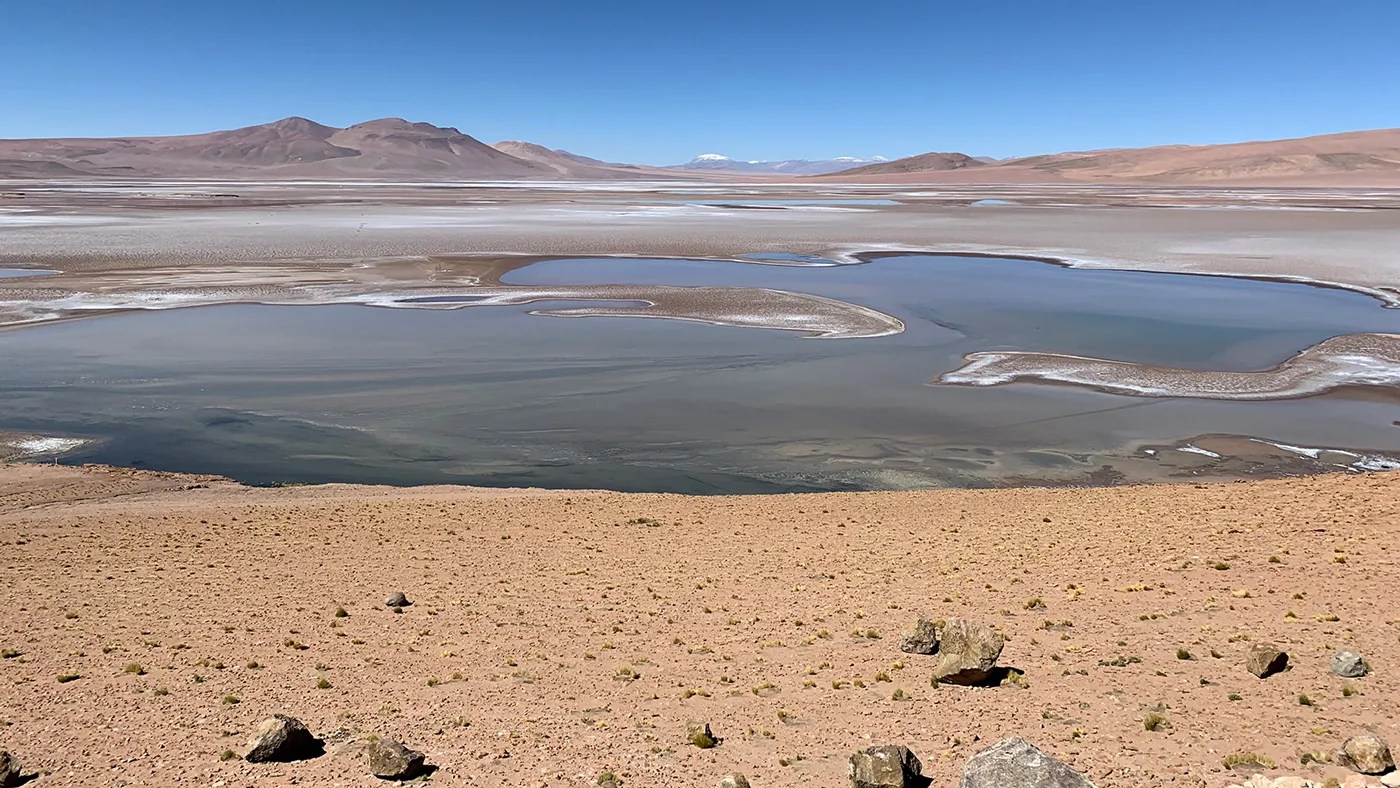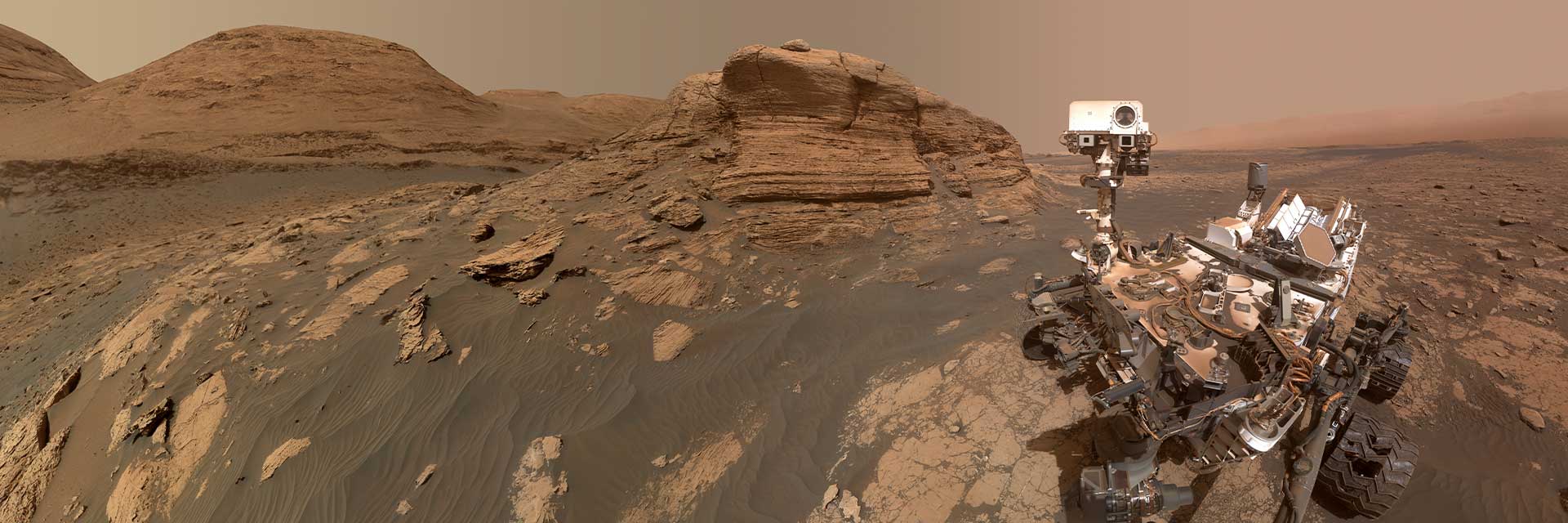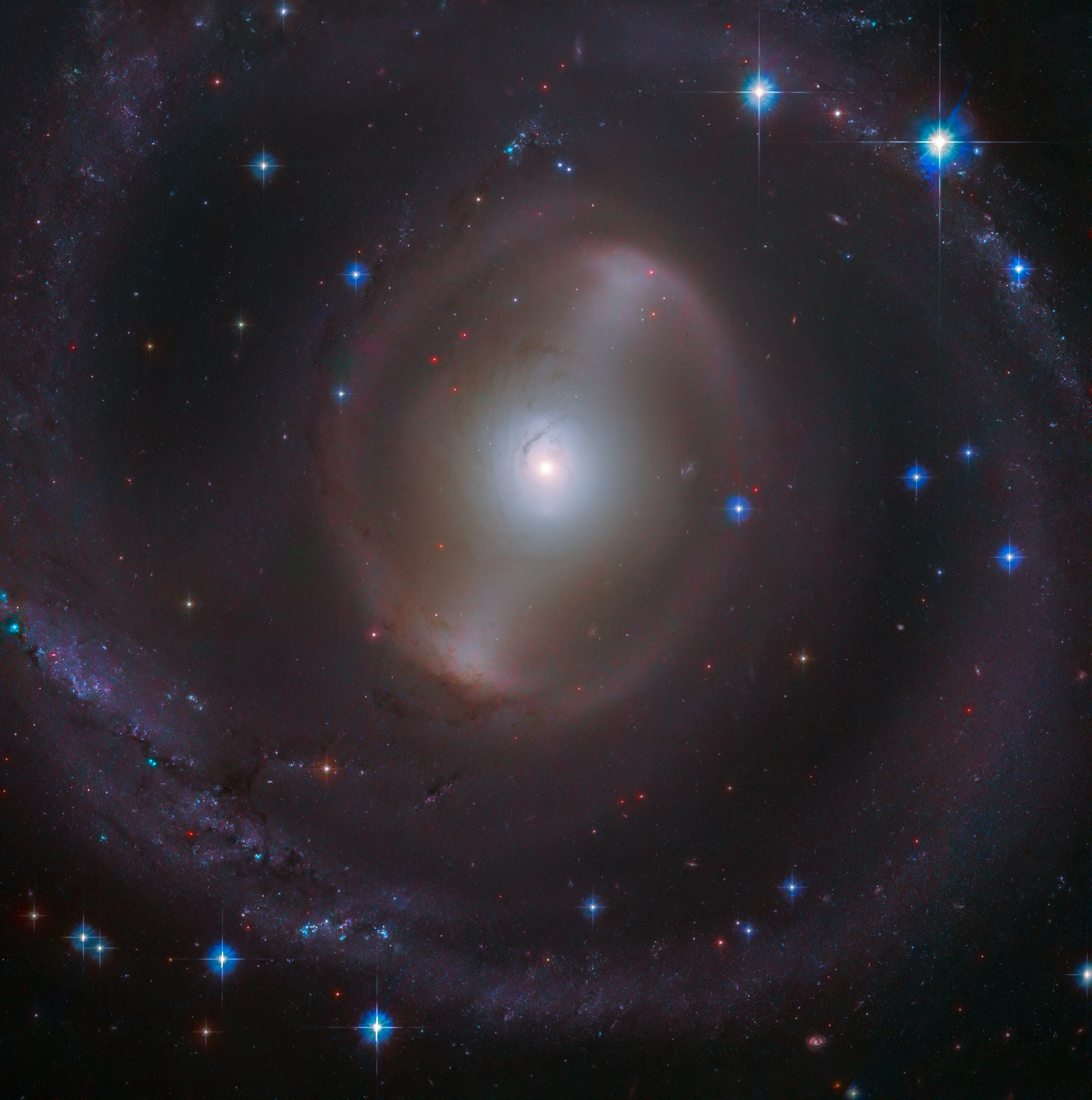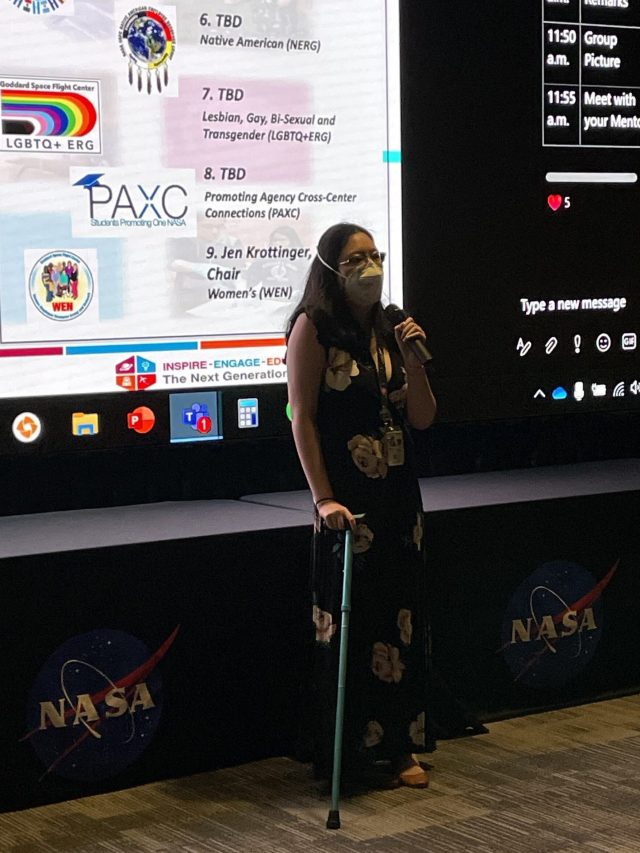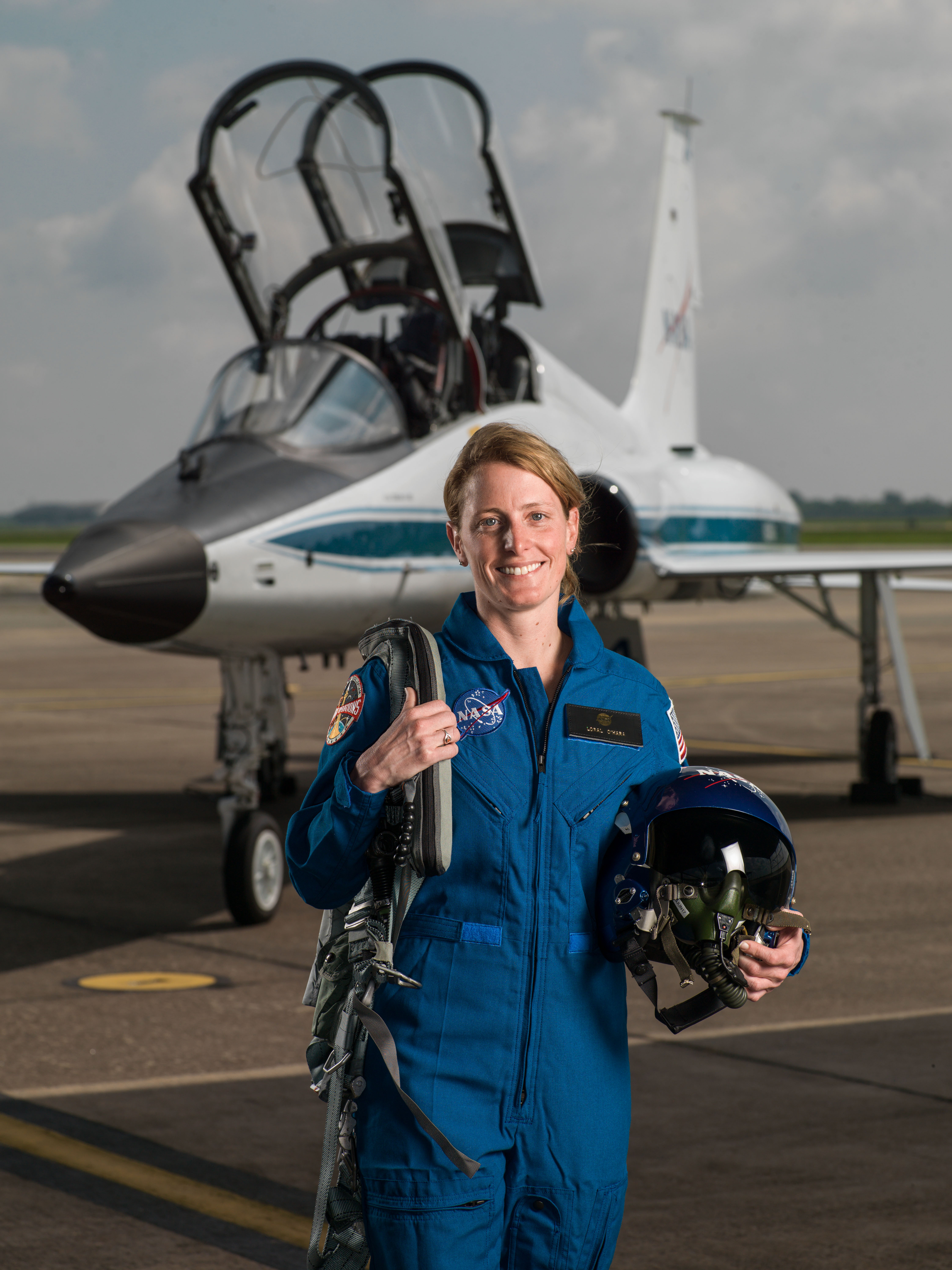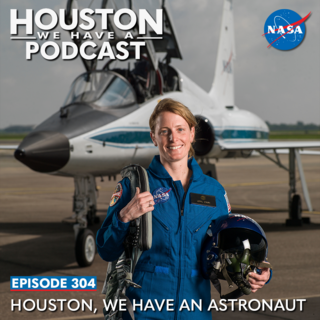
From Earth orbit to the Moon and Mars, explore the world of human spaceflight with NASA each week on the official podcast of the Johnson Space Center in Houston, Texas. Listen to in-depth conversations with the astronauts, scientists and engineers who make it possible.
On episode 304, hear from NASA astronaut Loral O’Hara ahead of her launch to the International Space Station. This episode was recorded on June 7, 2023.
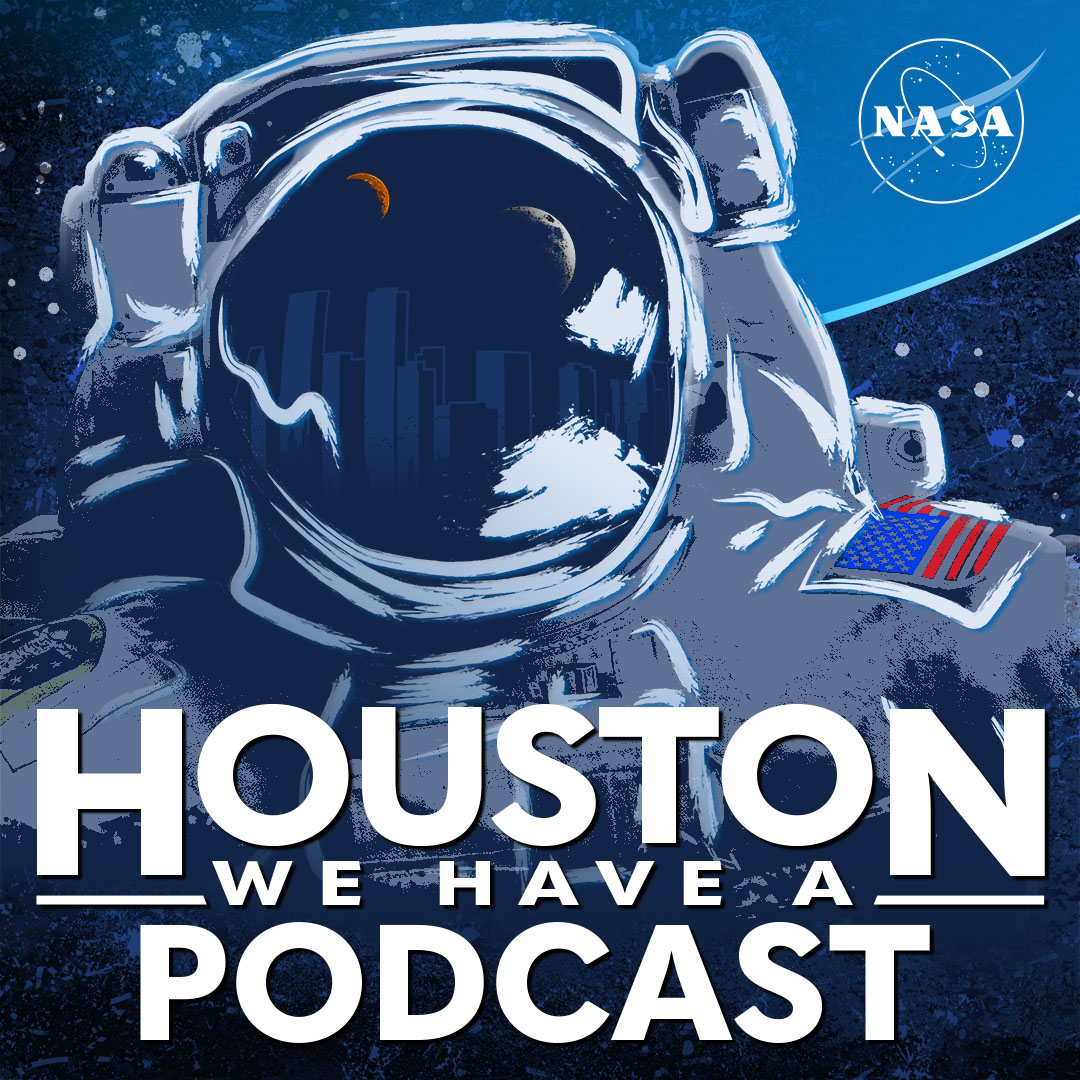
Transcript
Host (Gary Jordan): Houston, we have a podcast! Welcome to the official podcast of the NASA Johnson Space Center, Episode 304 “Houston, We Have an Astronaut.” I’m Gary Jordan, and I’ll be your host today. On this podcast, we bring in the experts, scientists, engineers, astronauts, all to let you know what’s going on in the world of human spaceflight. Loral O’Hara was selected by NASA as an astronaut candidate in 2017. As a researcher exploring some of the most extreme and remote environments on planet Earth and now a NASA astronaut, Loral is looking forward to her very first mission on the International Space Station. Born right here in Houston, Texas, O’Hara graduated from Clements High School in Sugarland, Texas in 2001. She earned a Bachelor of Science degree in aerospace engineering from the University of Kansas in Lawrence, Kansas in 2005, and earned a Master of Science degree in aeronautics and astronautics from Purdue University in West Lafayette, Indiana in 2009.
Prior to joining NASA, her work focused on the engineering and operations of deep ocean research, scientific submersibles and robots. At the time of her selection in June 2017, O’Hara was a research engineer at Woods Hole Oceanographic Institution in Woods Hole, Massachusetts, where she spent eight years working on the engineering and operations of underwater vehicles, such as the Human-Occupied Research Submersible (HOV), Alvin, and the remotely operated vehicle, Jason. Her experience includes mechanical design and analysis, systems engineering, manned submersible testing and certification, and vehicle operations. She participated in 11 scientific research cruises aboard research vessels as a mechanical technician and data processor. From 2006 to 2007, she worked for Rocketplane in Oklahoma City, Oklahoma, as a project engineer on the development of a suborbital space vehicle. O’Hara is set to fly on the Soyuz MS-24 mission to the International Space Station. This mission will be a crew of three, where she will be accompanied by two Russian cosmonauts launching from the Baikonur Cosmodrome Launch Site 31 in Kazakhstan. This will be O’Hara’s first flight assignment of her astronaut career. She’s scheduled to launch in September 2023. Now that’s just skimming the surface. Let’s dive even deeper into the ocean that is the life of NASA astronaut, Loral O’Hara. Enjoy.
[Music]
Host: Loral O’Hara, thank you so much for coming on Houston We Have a Podcast.
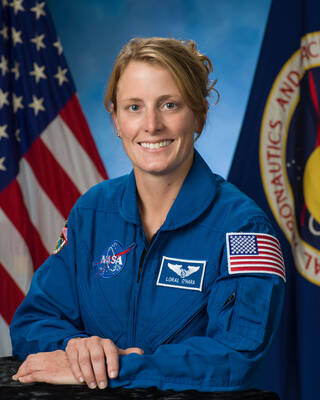
Loral O’Hara: Thank you for having me.
Host: Hey, very exciting. You’re going to be launching to the International Space Station soon and being there for quite some time. You know, I think what’s exciting about your background is you’ve had exposure to space for quite some time and it’s just sort of been in your backyard and now it’s happening. But I think it’s really interesting growing up in Houston that you just had this right here. What was it like growing up and just being around this area?
Loral O’Hara: Yeah, it was awesome, and I think that’s a large part of why I’m here today. My earliest memory of going to NASA—I mean we would come down to Johnson Space Center for field trips and just with my family all the time—but in second grade I had the opportunity to grow tomato seeds that had flown on Space Shuttle as part of a school project. And then I also got to do things like come down to Johnson Space Center for the Space Shuttle debriefs, so my dad would bring me down here to Space Center Houston when the crews would go over there and show pictures and talk about their missions. So that was super awesome, too.
Host: Awesome.
Loral O’Hara: Yeah. I remember meeting Eileen Collins after one of her flights and so those were all really kind of inspirational moments.
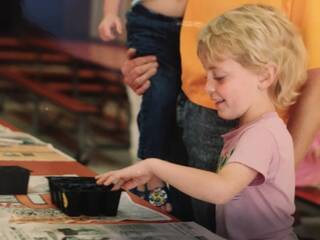
Host: Inspirational, formative…Did you have that in your mind as you were going to college, it was maybe in the back of your mind like, “maybe I’ll end up at NASA one day?”
Loral O’Hara: Oh yeah. No, I think my parents say that the first time, you know, I started talking about being an astronaut when I was pretty young.
Host: Really?
Loral O’Hara: Like first grade, second grade. I wanted to be like everything when I was younger, but astronaut kind of was at the top of the list all the way growing up.
Host: Yeah. I wanted to be a movie director and a pilot—a pilot movie director. I don’t know.
[Laughs]
Host: It was like one of those things, yeah. But eventually you got there and so that’s the journey we’re going to take. Houston though, I want to kind of lean on that just a little bit more. Just cause I think when we talk about Houston, we talk about the NASA Johnson Space Center, obviously, but there’s more to it. What was life growing up here? What was childhood like? What were the things that you were doing, the people you were hanging out with?
Loral O’Hara: My family lived in Missouri City when I was born and we lived there until I was around seven, and then moved to England for three years. So we lived overseas for those three years, which was kind of a glorious time in my childhood cause we lived out in the country and our house just backed up into woods.
Host: Oh, wow.
Loral O’Hara: So I spent a lot of time just kind of exploring—we had a lot of freedom there to explore the woods and go on hikes and my family took a lot of trips. We got to travel around Europe and England, Scotland and Ireland and places like that. That was like a pretty early experience that I think gave me a bit of wanderlust for the rest of my life. But then we moved back, and we moved back to Sugarland, and that’s where I went to middle school and high school. It was a pretty typical suburban youth, like I played soccer, I ran cross country and track. I did a lot of art. Those were kind of the main things I was interested in, you know, just through middle school and high school.
Host: Maybe not necessarily in your backyard, but you do have, you know, Sam Houston National Forest and different things where you can explore, right? So hopefully you never lost that sense of exploring that you had in the UK.
Loral O’Hara: Oh, no. Well, so we lived on the edge of Sugarland, this was, I don’t know, 20 years ago now. Sure. When it wasn’t as big as it is now. So, we still had a lot of woods to explore around the house.
Host:Right, in your backyard. Perfect.
Loral O’Hara: Yeah, exactly.
Host: Because I think about the metropolitan that it is today, but very, very cool.
Loral O’Hara: Yeah, so like in high school for my 16th birthday, my parents got me an introductory flying lesson. So I started taking flying lessons in high school and got my private pilot’s license when I was 17. And so that kind of became my means of exploration in high school because I wasn’t allowed to drive. I could only drive to school or work, but I could go get an airplane and like fly down the coast somehow.
[Laughs]
Host: Oh, that is cool.
Loral O’Hara: Yeah. So that was a really fun combination of just like science and adventure and freedom at that age.
Host: Yeah, at which I guess you locked onto, right? Because eventually when you go to college, you’re pursuing very, what I believe are adventurous things, right? So when you were flying in the air, when you were thinking about going to college, where you would go, what you would do, what were some of those things that inspired you to pursue what you pursued?
Loral O’Hara: I was interested, like when I was thinking about colleges and what I wanted to study, I was interested in a bunch of different things. My dad was a geologist. I was interested in going into a science-related field. I actually also applied and got into art school in Rhode Island. So I did consider going to art school for a little bit as well. But the experiences flying kind of made studying aerospace engineering and no-brainer for me. I was like pretty airplane crazy.
Host: It was flying that directed you in that way. Interesting.
Loral O’Hara: Yeah, once I started flying, I don’t think I really looked at any other major.
[Laughs]
Host: That’s awesome. You started in Kansas.
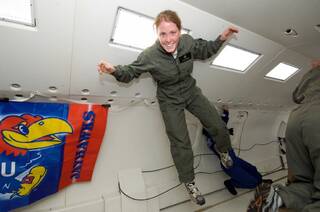
Loral O’Hara: Yes.
Host: So what kind of gravitated you towards that school?
Loral O’Hara: Initially I started looking at Kansas because I got a scholarship there. But then I went up and met with some of the professors in the aerospace engineering department and saw the labs and facilities that they had there. They had a shop out at the airport and it just seemed like there were a lot of opportunities there. And I had also never really spent any time in the Midwest. So I was planning to go to University of Texas, but there was some appeal also in just like going somewhere entirely new.
Host: Yeah.
Loral O’Hara: It’s a really beautiful town, really cool department. And so I decided to do it.
Host: And you hate hills.
Loral O’Hara: Yeah. Topography sucks [Laughs].
Host: I need flat. I need flat wherever I go.
[Laughs]
Loral O’Hara: Well, I’m joking cause that part of Kansas is actually like rolling hills.
Host: Is it really?
Loral O’Hara: Yeah.
[Laughs]
Host: I just assume.
Loral O’Hara: Well the university is on a ridge line actually. So you have like views in all directions, it’s really pretty.
Host:Interesting. Okay. I just know Kansas is the flattest place and I’ve been to Hutchinson.
Loral O’Hara: Oh yeah, it gets flat out in the western part.
Host: Exactly. So then you continued your education, you went to Purdue. What was that experience like?
Loral O’Hara: So after Kansas, I actually went and worked for a year and a half in Oklahoma City at a startup company called Rocketplane. If you remember the XPRIZE? I was in college during the very early days of like the commercial space industry and so this was like XPRIZE and, you know, SpaceX was just getting started and all of these other companies. And so Rocketplane was one of those companies. So I went there for a year and a half and worked as the project engineer for the rocket propulsion system. So I was responsible for integrating the subsystems into the aircraft, basically, we were building a business-jet-sized aircraft to take people to the edge of space.
Host: All right.
Loral O’Hara: So in doing that job, I was a project manager, like I said, so kind of a little bit higher up. You know, working systems, engineering and integration. And so I decided I wanted to go back to grad school to study rocket propulsion, you know, at a more fundamental level. And so that’s what led me to Purdue.
Host: It is interesting though that right out of a bachelor’s, you had such a big responsibility.
Loral O’Hara: Yeah. Small startup company. So lots of opportunities. It was awesome.
Host: Yeah, exactly. And it sort of catapulted you into realizing, “okay, yeah, maybe I need to kind of go back and learn more about this, dive in a little bit deeper.” Cause it seemed like maybe it sold you that this is sort of the direction you wanted to go.
Loral O’Hara: Yeah. And my plan had always been to go back to grad school in some form or fashion. I just wasn’t sure exactly what I wanted to study and so that was helpful in that regard.
Host: After Purdue, where’d you go to next?
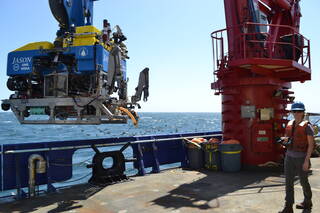
Loral O’Hara: So I actually started at Purdue working on a PhD, but I ended up getting a master’s. After Purdue, I ended up at Woods Hole Oceanographic Institution. That’s probably a longer story, but in short, I was working at Purdue studying combustion instability. I had been sort of singular focus on aerospace and rocket propulsion kind of all the way through since I was a little kid. My sister, at the time, was studying geology at Penn State and her research was all out in the field. So she was like backpacking in Iceland, studying fault lines and things like that. And so I started to think, I’ve always wanted to be an explorer and be doing field work and things like that. And the path that I was on—I wasn’t really headed down that path—and so I started just looking at other opportunities and I applied and got a job in Antarctica [laughs]. I didn’t end up going to Antarctica, but that is the roundabout way of how I ended up at Woods Hole Oceanographic.
Host: Okay. Yeah. But I mean, it can be a little daunting. I think about my own, you know, education and you spend years kind of refining your skills, but then to take what I think is like a left turn.
Loral O’Hara: Yeah.
Host: It is sort of something you have to really think about and sit with before you actually commit to, “do I actually want to do this?” Or, you know, “I made this much progress.” You must’ve been really sold by that idea of adventure.
Loral O’Hara: Yes.
Host: Okay. That was it. So Woods Hole Oceanographic allowed you to do adventure. And you already mentioned Antarctica. That’s definitely an adventure. What was that like?
Loral O’Hara: Well, I didn’t end up going, that’s the funny part of the story.
Host: Really? Okay.
Loral O’Hara: Yeah.
[Laughs]
Loral O’Hara: So I applied to the job at Woods Holes because during my master’s, I’d had the opportunity to design and build and test hardware and I really enjoyed that whole process of like coming up with an idea and developing the idea and designing the hardware—you know, building it and then putting it together and testing it. So I kind of just wanted more experience doing that because at Rocketplane, I had mostly done some aerodynamics analysis and systems engineering as well, so I’d always kind of been on the analytical side of things versus design. And so I saw a job posting to design, build and test oceanographic hardware, and I applied and got that job. And I also figured it would allow me to kind of explore, you know, the idea of getting into more of a scientific field versus, you know, aerospace engineering.
Host: And the stuff that you were building is quite cool. It’s a submersible? Is that what you were doing?
Loral O’Hara: Yeah. My first project at Woods Hole was working on a major upgrade to the Alvin submersible. It’s a human-occupied research submersible that takes a pilot and two observers down now to 6,500 meters.
Host: All right. Now you got to work on the design of it. Did you also get to pilot it?
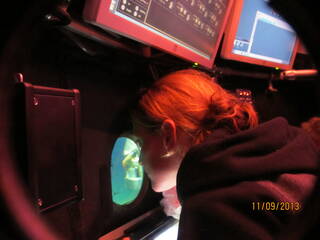
Loral O’Hara: I had one dive in the sub during sea trials; but yeah, I was a mechanical engineer. I started as a mechanical engineer, you know, designing various mechanical components and subsystems. And then I also supported the Navy certification of the submersible. And then also some of the systems engineering and weight balance and things like that.
Host: You reflect on that time. What’s something that stands out to you? Is it the experience of actually piloting the submersible? Or is there something else that when you reflect on that time, you know, a highlight from that experience?
Loral O’Hara: So diving in the sub was amazing. But I think really the most memorable part of that project was just the final few months when we were putting the sub back together. And it was just the experience—it was a relatively small team, you know, maybe 20 people in all—and everyone was working really hard and, you know, working long days and weekends to put the sub together. And so just kind of that experience of like a small team coming together to do something really big and how rewarding that was, that stuck with me and I sought that out again and again.
Host: Oh, okay. Yeah. That idea of starting something, and not only that, but completing it. Seeing the fruits of your efforts come to life. You know, you talked about in the beginning about how you had this idea of an astronaut from, I think you said first grade. I guess that maybe that was with you throughout all of these experience, “hey, maybe I can still be an astronaut.” Was it with you through this journey of yours?
Loral O’Hara: I started applying to be an astronaut as soon as it was realistic for me. The first time I applied was for the 2009 class when I was still in grad school. So if you added up all of my work experience and internships, which I don’t think is really how they kept career experience, I like barely met the minimum qualifications. So I didn’t hear anything back from that one. And then I applied again in 2013 and then finally for the 2017 class.
Host: Where you got selected, right?
Loral O’Hara: Yeah.
Host: Tell me about the call for you.
Loral O’Hara: I had just run home for lunch one day and knew they were going to be calling all of us but didn’t know when, you know, on that day. And so I just got the phone call while I was at home for lunch. I think I was pretty shocked. It was very unexpected, even though I knew it was possible. I think I just said, “wow” or something like that.
[Laughs]
Host: Wow. Who was the first person you told?
Loral O’Hara: So that was an awesome part of it. As soon as I hung up, I called each of my family members in turn and got to share the news with them and that was really special just because they’d been there, you know, my whole life, listening to me talk about being an astronaut. So it was pretty cool to get to tell them that I had just gotten invited to be one.
Host: Wow. I remember working on your announcement of the 2017 class and we all divvied up cause it was a decent class. I think it was 12 that was selected if I’m not mistaken. It was up there. But we all divided up the roles within our office, within PAO, of getting to talk with certain individuals and I got to talk with you and with Jessica Watkins. And you guys were both just really excited and it was a really cool experience to get to onboard you. And we really went all out for the 2017 class; we brought you on stage and you were wearing the blue flight suit. You got to wave. I mean, reflecting on that whole experience, was it surreal?
Loral O’Hara: Yeah, that’s actually the word I was going to use—
Host: “Was surreal?”
Loral O’Hara: Yeah. I had not been a part of something like that before and I don’t think most of us had and so it was pretty surreal
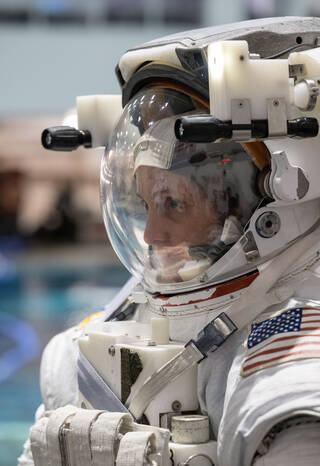
Host: When you were talking and getting to know your fellow classmates, I think one of the things that became apparent to me as I was talking with you and with everybody is you guys seem to get along like almost instantly. And I think that carried on for the following years through training as an astronaut candidate, through the different assignments that you guys have been getting, and actual spaceflights to the International Space Station. Have you guys maintained that close total relationship?
Loral O’Hara: Absolutely, yeah. I think we hit it off really well, but just those two years of being together, like being a part of “The Turtles” is one of the best experiences I think of my career in my life. It’s just a really special group of people. I don’t see that changing throughout our careers; pretty tight bonds between all of us.
Host: So astronaut candidate training. You get thrown right into it. What are some of the first things that you’re doing, your first experiences training to be an astronaut? Getting ready for really what is what we’re going to be talking about here, which is your first spaceflight.
Loral O’Hara: So training—just the initial two years of ASCAN (astronaut candidate training)—is kind of, I think, commonly described as drinking out of a fire hose, which is very true. We start with a lot of briefings and then we start our technical training, which is everything from spacewalk training to space station systems training, robotics, Russian language, learning how to fly the T-38 jets. Then a slew of other things that you might, you know, not think of as being astronaut skills, but like medical training and geology training, biology, all the different skills that we use on space station.
Host:Drinking out of a fire hose cause you get a lot to learn in a really short amount of time. After astronaut candidate training, what were some of the things that you were thrown into?
Loral O’Hara: Yeah, so we graduated in 2020, January of 2020, right before the world changed.
Host: That’s right. Right before COVID.
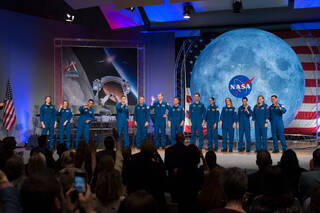
Loral O’Hara: Yeah, and so my first job after ASCAN was being the CB increment lead. So I was the astronaut office representative to the ISS program for one expedition. So it was Expedition 62 and then the first part of Expedition 63. That was really neat because I got to know a lot of the flight directors and flight controllers and International Space Station program leadership through that job. And also just got a really good understanding of how the space station program works, like what happens in the background to make a successful day on orbit. I think that will be really helpful insight once I’m on orbit myself to kind of understand what happens when a crew, you know, calls down with a question or, you know, when we’re asked to do something, we might not understand everything that went into that request.
Host: Yeah. That’s going to help because you were working with the astronauts who are on the ISS, but now knowing that whole back channel of the decisions that are made, the conversations that are had, it just gives you a better understanding of whenever you need to call down and ask for something or request something, you know what’s happening.
Loral O’Hara: Yeah, definitely. And also it was a great opportunity to get to meet a lot of the flight control team that supports us. So I’m excited to be on orbit and, you know, look at the Mission Control roster and you know, see who’s on console and stuff. I have a lot of friends there.
Host: That’s good. That’s good, that rapport is going to be awesome. Now when you got assigned to fly on the Soyuz to the International Space Station, what was that moment like for you?
Loral O’Hara: So after I was the increment lead, I actually moved to Russia for a year to be the director of operations in Star City. So I was an asset representative in our training office there. And so I was actually living in Star City when I got assigned to my spaceflight, which was great because I loved living in Star City and working with everybody over there. So I ended up actually just staying an additional nine weeks to start my Soyuz training.
Host: Oh yeah. You just blended right into—
Loral O’Hara: Yeah, I just rolled right into training there. It was perfect.
[Laughs]
Host: That’s great. So yeah, you’re starting to train for Soyuz. A lot of things are in Cyrillic, you’ve mentioned Russian language training as an astronaut candidate, but you’re getting thrown into this. What was the Soyuz training like?
Loral O’Hara: Soyuz training—so we start over there by studying the individual systems in detail. So we have classes on each of the systems of the spacecraft and then we have exams on each system, and then that kind of rolls into starting sims (simulated spaceflight). So that’s where we’re in the simulator and we’re working through procedures from launch all the way to docking and then likewise from undock all the way to landing. I really loved that. I loved getting to dig into each of the systems on Soyuz and really understand them and that was helpful. You know, obviously later in sims when we’re getting failures thrown at us and having a good understanding of the systems is pretty key.
Host: A huge component of this is not only the spacecraft that you’re going to be flying to get up to the orbiting lab, but life on the orbiting lab itself.
Loral O’Hara: Yes.
Host: You got all the training for the systems on there, you’re going to be conducting research. You know, you’ve got to think about spacewalks, you’ve got all these different things that you’re working on that you have to be prepared for. So what was that training like?
Loral O’Hara: Yeah. At the same time I started training on the Russian segment space station systems, then once I got back to the United States, I picked back up with ISS systems training here, and then also of course making trips to Germany and Japan and up to Canada to learn about the Japanese Module and the ESA Module and learn how to operate the Canadarm.
Host: Do you feel ready?
Loral O’Hara: Yeah.
[Laughs]
Host: More than ready. Let’s go.
Loral O’Hara: Absolutely.
Host: That is so good. Now I’m sure you’ve gotten to chat with some folks who have been on the space station, fellow “Turtles,” you know, anyone else in the astronaut core, to get some advice about being as successful as possible as an expedition crew member. What’s some of the pieces of advice that really stand out to you, that you sort of captured and think about?
Loral O’Hara: Yeah, I think mostly it’s just kind of preparing myself mentally for the long days that we’re going to work and the challenges and frustrations that can come up when you’re working in a remote environment like that, and I’ve had that experience before. But it’s just kind of that anticipation that there’s going to be times when, you know, you might mess something up and you just have to fix it, let it roll off, and like keep going about your day. And just working with the ground teams, working with your crew mates and just kind of anticipating some of those challenges.
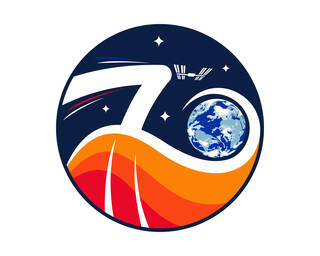
Host:Now on top of thinking about the other side of things and not away from the challenges is more of the personal goals, right? Now of course, as an expedition crew member, you have your objectives, you’ve got to conduct the science, you’ve got to maintain the International Space Station. You’ve been training a lot and you’ve already mentioned you feel really ready. If you’re going to spend six months in space, I’m sure you’ve been dreaming about this since, you know, first grade. This is something you have to have some sort of personal expectation and personal goal of what you want to experience, the time you want to dedicate, and thinking about in space. Have you put some thought into that?
Loral O’Hara: Yeah. I mean at kind of the most basic level, my goals are just to do a good job, do good science, take care of space station, and then also to have really good relationships. You know, I’m looking forward to building those relationships with my crew mates and sharing that experience with them and then also working with everyone on the ground and kind of, you know, building that dynamic with the ground as well. Personally, I am really excited just to get to space and look back at Earth for the first time from that perspective. And I’m also really excited to see space station in person, look out the window of the Soyuz spacecraft and like see a solar array right next to me. It’s hard to imagine that that’s actually going to be reality in a couple months here. I’m just really excited to see the lab. I’m also really excited to get on board and start learning how to live and work in a three-dimensional environment. I think it’ll just be really interesting to see how my body adapts and how my mind adapts to that kind of foreign environment where there’s really no up or down and you can fly around.
[Laughs]
Host: Yeah. I think about it sometimes, too. You work in this business for a while, and you start having dreams. I don’t know if you’ve had this, but I’ve definitely had a space station dream, or two, of actually floating and doing things. I’ve put on the VR and you just imagine it and you try to immerse yourself in the moment. You think about the stories that people share about working on, like you say the three dimensions, working on one side of the space station and then flipping your whole body to a brand new perspective and working on what looks like the wall, but it’s just a new interface. It’s just a new thing.
Loral O’Hara: Totally. And we spend so much time in the mockups here training over in Building 9 that you kind of get used to like, “well this is up, and this is down.” Because you’re in there every day and you’re looking at everything from that point of view. So, it’ll be interesting to get on space station and like suddenly that doesn’t have to be up.
Host:Yeah. That angle that you couldn’t get from when it was right side up on the Earth, you could just flip upside down and try it from a different angle. Very cool. Now what’s next for you? We are recording this in June and so leading up to your launch, you have a couple of things to really make sure that you’re ready for that moment. What’s next for you?
Loral O’Hara: So next week I go back to Russia for two weeks and that will mostly just be doing a couple Soyuz sims, just systems refreshers. And then I’ll come back and that will be a very busy month, the month of July, because I’ll leave again for Russia in early August to get ready for launch. But in July when I come back, it’s a lot of medical—you know, I’m part of a research study called CIPHER (Complement of Integrated Protocols for Human Exploration Research) that’s this like very comprehensive study. I’m the first participant actually. So it’s super interesting. There’s studying like all aspects of physiology, on how the space environment impacts the human body. And so there’s a lot of studies and, you know, tests for that leading up to my launch. So I’ll be doing a lot of that. I’ll be in the NBL (Neutral Buoyancy Laboratory) doing spacewalk training with Jasmin and Andy, two of my crew mates on board. So we’ll be looking at some of the procedures and work that we might be doing on spacewalks for the upcoming mission. And yeah, just getting ready, taking care of all the little things to get ready to go.
Host: Very exciting. Yeah. You’re going to be flying with Jasmin Moghbeli, Andy Mogensen. I mean, the Crew-7 astronauts as well. You get your Russian cosmonauts that you’re going to actually be flying with and I’m sure you’d developed a relationship with, but you’re going to be up there with quite a number of people.
Loral O’Hara: Yeah. Crew-7 and Crew-8.
Host: Crew-7 and Crew-8, yes, that’s great. Loral, this has been awesome to talk to you. I wish you all the best for this upcoming expedition and your launch to the International Space Station. I hope you get to experience all the things that you’ve been wanting to experience since dreaming about this as a little girl.
Loral O’Hara: Thank you.
Host: And now you get to actually live it. It’s just a really exciting time.
Loral O’Hara: Thank you.
Host: Thanks for coming on. Appreciate your time talking with me today.
Loral O’Hara: Thanks for having me.
[Music]
Host: Hey, thanks for sticking around. I really had fun talking with Laura O’Hara today ahead of her mission. I really hope you learned something and are going to enjoy her mission aboard the International Space Station. Check out NASA.gov/iss for the latest happening onboard the International Space Station. We have many NASA podcasts across the agency and you can check out all of them at NASA.gov/podcasts. That’s where you can also find us and our many episodes that we have, you can listen to them in no particular order. In fact, if you go to our website, we actually have a collection of all the astronauts we’ve talked to over the years. So you can listen to Loral’s episode as well as the many others we’ve had since we started in 2017.
If you want to talk to us on social media, we’re on the NASA Johnson Space Center, pages of Facebook, X, and Instagram. You can use #AskNASA on your favorite platforms to submit an idea for the show. Just make sure it’s to mention it’s for us at Houston We Have a Podcast. This episode was recorded on June 7, 2023. Thanks to Will Flato, Pat Ryan, Justin Herring, Heidi Lavelle, Abby Graf, Belinda Pulido, and Jaden Jennings. And of course, thanks again to Loral O’Hara for taking the time to come on the show. Give us a rating and feedback on whatever platform you’re listening to us on and tell us what you think of our podcast. We’ll be back next week.


